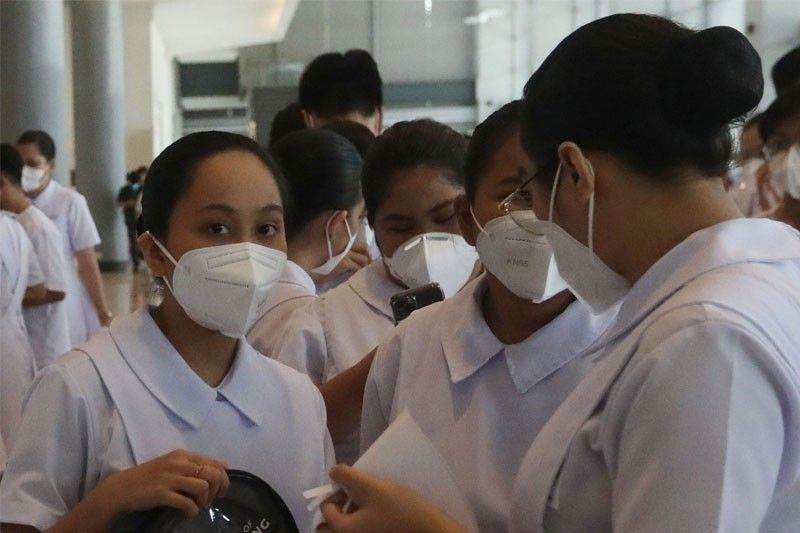‘Innovations needed to address Filipino nurses’ exodus’

MANILA, Philippines — As Filipino nurses continue to leave the country due to meager pay, the new leadership of the Department of Health (DOH) should innovate to retain local health workers, a senator said yesterday.
“Does the DOH have a plan in the next budget cycle to propose upgrades so they don’t have to leave the country?” Sen. Francis Tolentino asked newly appointed Health Secretary Teodoro Herbosa on radio dzRH.
Herbosa, appointed as DOH chief on June 5, said he spoke with the Professional Regulation Commission (PRC) to relax licensing rules and make employment easier for fresh graduates.
“The problem is that the Civil Service Commission allows only licensed nurses to work in the health sector in the government... I requested the PRC to give temporary licenses for three years if they have graduated nursing to work in the government,” Herbosa explained.
Tolentino filed the “Philippine Nursing Practice Act of 2022” last October, which will provide better compensation and training to local nurses.
Specialty centers
Meanwhile, health experts have given assurance of enough health care workers to be deployed to specialty centers that the DOH will establish within the next five years.
In the “Regional Specialty Centers Act,” medical specialty centers will be established in each region within five years, but the budget of local government units and low salaries remain an issue.
“If what will be applied in the LGU is the same as the national… that is another challenge since at the local government level, the salary grade is lower compared to the national government,” Philippine College of Physicians (PCP) president Dr. Rontgene Solante said in a televised interview.
“We were asked to submit a list of specialists in PCP, like how many cardiologists or nephrologists we have – so we map out specialists all over the country... and we provided that information to the Department of Health,” he said.
Solante added three regions are being prioritized, and the specialty centers will cater to patients with heart, lung and kidney diseases.
Following the appointment of Herbosa as DOH chief, health advocates are hoping for full enforcement of the government’s policy on non-communicable diseases (NCDs).
The Healthy Philippines Alliance (HPA) is expecting to maintain a mutual commitment with the DOH to tackle NCDs as part of implementing universal health care.
“Regardless of leadership change, we have to ensure continuity and uninterrupted enforcement of the multiple strategies to prevent and control NCDs... We have already made significant strides with action plans and legislations already in place that address NCDs and its chief risk factors, namely tobacco use, alcohol drinking, unhealthy diet and physical inactivity,” former DOH chief and HPA member Jaime Galvez-Tan said.
The group said the government can do more by mobilizing LGUs to intensify the implementation of policies, such as the imposition of health taxes on unhealthy products, regulation of advertisements promoting unhealthy food to children, mandatory front-of-pack labeling on food products and elimination of trans fat in food.
“We want to achieve a shift to healthier food consumption patterns... We need wider access to quality food from farm to table, enhanced consumer education or awareness campaigns... and a more inclusive nutrition counseling program for patients living with NCDs,” said Diabetes Philippines board member Leyden Florido.
In the Philippines, NCDs such as cardiovascular diseases, cancer, chronic respiratory disease and diabetes account for 70 percent of total deaths.
In 2022, ischemic heart disease was the leading cause of death, killing 114,500 Filipinos, while neoplasms or cancers came in second with more than 63,300 deaths, according to the Philippine Statistics Authority — Rhodina Villanueva
- Latest
- Trending





























